Life
Sign up for our newsletter
We summarize the week's scientific breakthroughs every Thursday.
-
 Plants
PlantsFloral curve test shows what’s great for a moth is not so good for a flower
3-D printed flowers reveal a hidden conflict between a hawk moth and the flowers it pollinates.
By Susan Milius -
 Animals
AnimalsDrowned wildebeests can feed a river ecosystem for years
Only a small percentage of wildebeests drown as they cross the Mara River, but they provide resources for the river ecosystem for years after their deaths.
-
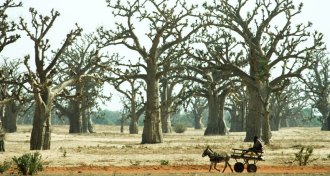 Ecosystems
EcosystemsEarth’s dry zones support a surprising number of trees
A Google Earth-based estimate of dryland forests adds serious leafage to Earth’s total tree count.
By Beth Geiger -
 Animals
AnimalsThis glass frog wears its heart for all to see
A newly discovered glass frog species has skin so clear that it reveals most of the animal’s internal organs, including the heart.
-
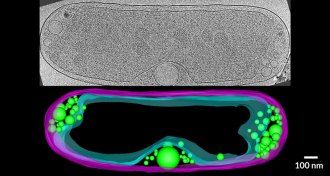 Life
LifeScientists spy on the secret inner life of bacteria
New images reveal the inner workings of bacteria.
-
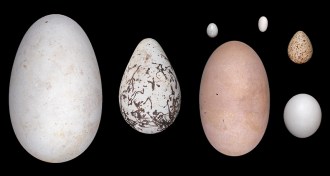 Life
LifeFlight demands may have steered the evolution of bird egg shape
An analysis of nearly 50,000 bird eggs finds a link between a species’ egg shape and flight ability.
-
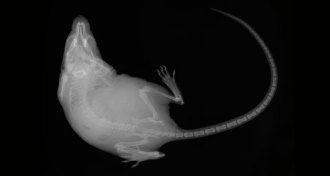 Health & Medicine
Health & MedicineBones make hormones that communicate with the brain and other organs
Bones send out hormone signals that chat with other parts of the body, studies in mice show. What influence these hormones have in people, though, remain a mystery.
-
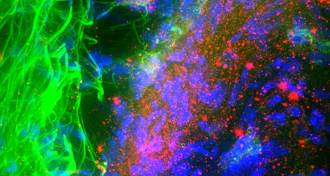 Health & Medicine
Health & MedicineProtein in Parkinson’s provokes the immune system
The immune system recognizes parts of a protein linked to Parkinson’s disease as foreign, triggering an autoimmune response.
-
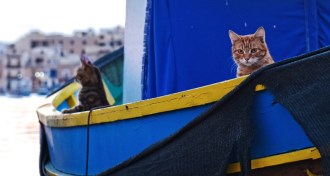 Genetics
GeneticsDNA reveals how cats achieved world domination
Analysis of 9,000 years of cat remains suggests two waves of migration
-
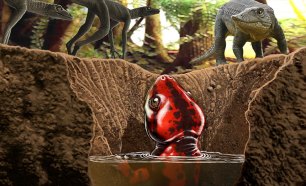 Paleontology
PaleontologyNew fossils shake up history of amphibians with no legs
The oldest near-relative of today’s snake-shaped caecilians could have an unexpected backstory.
By Susan Milius -
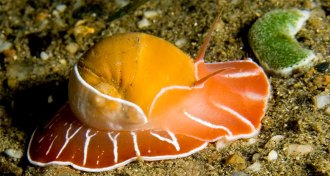 Paleontology
PaleontologyAncient attack marks show ocean predators got scarier
Killer snails and other ocean predators that drill through shells have grown bigger over evolutionary time.
By Susan Milius -
 Animals
AnimalsFacial recognition changes a wasp’s brain
A new study maps genes at play in a paper wasp’s brain during facial recognition.